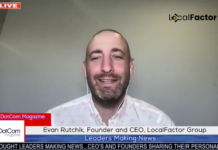Computational biology and bioinformatics represent two closely intertwined disciplines at the forefront of modern biological research, revolutionizing our understanding of life through the power of computation. These fields harness the principles of mathematics, statistics, computer science, and biology to analyze and interpret vast amounts of biological data, from genetic sequences to protein structures and beyond. By integrating computational methods with biological knowledge, researchers in computational biology and bioinformatics strive to unravel complex biological phenomena, predict protein functions, understand genetic variations, and even simulate biological systems.
Computational biology focuses on developing algorithms, mathematical models, and computational simulations to study biological systems. It aims to elucidate the underlying principles governing biological processes, such as gene regulation, cellular interactions, and evolutionary dynamics. This discipline leverages techniques from computer science, such as machine learning, network analysis, and data mining, to extract meaningful insights from biological data. By applying computational models, computational biologists can simulate biological processes in silico, providing valuable predictions and hypotheses that guide experimental research.
Bioinformatics, on the other hand, deals with the management, analysis, and interpretation of biological data, particularly from genomics and proteomics. It involves the development and application of software tools and databases to store, retrieve, and analyze biological information. Bioinformaticians utilize computational techniques to identify patterns in DNA sequences, predict protein structures, and annotate genetic variations. Through advanced algorithms and statistical methods, bioinformatics plays a crucial role in drug discovery, personalized medicine, and understanding disease mechanisms.
The synergy between computational biology and bioinformatics has transformed biological research by accelerating data-driven discoveries and enabling researchers to tackle increasingly complex biological questions. This interdisciplinary approach has led to breakthroughs in fields such as molecular evolution, systems biology, and synthetic biology. For example, computational methods have been instrumental in deciphering the human genome, revealing insights into genetic diseases and population genetics.
In molecular biology, computational techniques are applied to model protein folding dynamics, predict interactions between molecules, and design novel enzymes with specific functions. These applications not only expedite the discovery of therapeutic targets but also facilitate the engineering of biological systems for biotechnological applications. Moreover, computational approaches have enhanced our understanding of microbial communities, ecological interactions, and the dynamics of infectious diseases, aiding in public health efforts and environmental conservation.
The field of computational biology and bioinformatics continues to evolve rapidly, driven by advances in computational technology, high-throughput experimental techniques, and interdisciplinary collaborations. Modern genomic sequencing technologies, such as next-generation sequencing (NGS), produce massive datasets that require sophisticated computational tools for analysis and interpretation. Additionally, the integration of omics data (genomics, transcriptomics, proteomics, etc.) with clinical and phenotypic information promises personalized medicine approaches tailored to individual genetic profiles.
In academia and industry, computational biologists and bioinformaticians are in high demand for their expertise in data analysis, algorithm development, and biological interpretation. Pharmaceutical companies leverage computational tools to screen potential drug candidates, predict drug-target interactions, and optimize therapeutic efficacy. Agricultural biotechnology benefits from genomic insights to improve crop yield, enhance disease resistance, and develop sustainable farming practices. Similarly, environmental biologists utilize computational models to study climate change impacts, biodiversity conservation, and ecosystem dynamics.
Ethical considerations in computational biology and bioinformatics encompass privacy concerns related to genomic data, biases in algorithmic predictions, and the responsible use of biological information. As the field progresses, ensuring data security, transparency in algorithm development, and equitable access to technological advancements remain paramount. Collaboration across disciplines, including biology, computer science, mathematics, and ethics, is essential to address these challenges and harness the full potential of computational approaches in biological research.
These disciplines are intertwined in their quest to harness computational power to unravel biological mysteries. Computational biology focuses on developing algorithms and mathematical models to simulate and understand biological processes, while bioinformatics specializes in managing and interpreting biological data using computational tools and databases. Together, they have revolutionized fields like genomics, proteomics, and systems biology, enabling researchers to delve deeper into the intricacies of life at molecular and cellular levels.
One of the key strengths of computational biology lies in its ability to model biological systems computationally. By constructing mathematical models based on biological principles, researchers can simulate complex processes that are difficult or impossible to study directly in the laboratory. These models provide insights into the dynamics of gene regulation, protein interactions, and evolutionary pathways, offering testable hypotheses for experimental validation. For instance, computational models have been pivotal in understanding developmental pathways in organisms and predicting the impact of genetic mutations on disease susceptibility.
Bioinformatics complements these efforts by providing the tools and infrastructure to analyze vast amounts of biological data. This includes processing and comparing genomic sequences, annotating genetic variations, and predicting protein structures and functions. Bioinformaticians develop algorithms for sequence alignment, genome assembly, and phylogenetic analysis, facilitating discoveries in fields ranging from evolutionary biology to personalized medicine. The integration of diverse datasets—from genomic sequences to clinical outcomes—empowers researchers to uncover correlations between genetic variations and disease phenotypes, guiding the development of targeted therapies.
In practical applications, computational biology and bioinformatics have profoundly influenced medical research and healthcare. Precision medicine, for example, relies on genomic data analysis to tailor treatments to individual genetic profiles, improving therapeutic outcomes and minimizing adverse effects. By analyzing large-scale genomic datasets from patient populations, researchers can identify biomarkers for disease risk, progression, and response to treatment, paving the way for personalized diagnostics and therapies.
Moreover, computational approaches have enhanced our understanding of microbial diversity, ecosystem dynamics, and environmental responses to climate change. By analyzing metagenomic data from environmental samples, researchers can identify novel microbial species, characterize their metabolic capabilities, and assess their ecological roles. This knowledge informs conservation efforts, agricultural practices, and strategies for mitigating the impacts of global environmental changes.
In the realm of drug discovery and development, computational methods play a crucial role in screening chemical compounds, predicting their interactions with biological targets, and optimizing drug efficacy. Virtual screening techniques, molecular docking simulations, and machine learning algorithms accelerate the identification of potential drug candidates, reducing the time and cost associated with traditional experimental approaches. This computational-driven approach is particularly valuable in tackling complex diseases with multifactorial causes, where understanding molecular interactions and signaling pathways is essential for developing effective therapies.
Ethical considerations loom large in the field of computational biology and bioinformatics, particularly concerning the privacy of genomic data, biases in algorithmic predictions, and the equitable distribution of technological advancements. Safeguarding patient confidentiality, ensuring informed consent for genetic testing, and addressing algorithmic biases are critical to maintaining trust and fairness in genomic research and healthcare applications. Ethical guidelines and regulatory frameworks play a vital role in guiding responsible conduct and promoting transparency in data handling and analysis.
Looking ahead, the future of computational biology and bioinformatics holds promise for further transformative advancements. Emerging technologies such as single-cell sequencing, spatial transcriptomics, and CRISPR-based genome editing continue to expand the frontiers of biological research, generating unprecedented volumes of data that demand sophisticated computational analyses. Interdisciplinary collaborations between biologists, computer scientists, mathematicians, and ethicists will be essential to harnessing these technologies effectively and addressing complex biological challenges.
In conclusion, computational biology and bioinformatics represent dynamic and interdisciplinary fields that drive innovation in biological research, healthcare, and environmental science. By combining computational methods with biological insights, researchers can decipher the complexities of life, from molecular interactions to ecosystem dynamics. As technological capabilities evolve and our understanding of biological systems deepens, computational approaches will play an increasingly integral role in shaping the future of medicine, agriculture, and environmental sustainability.

















